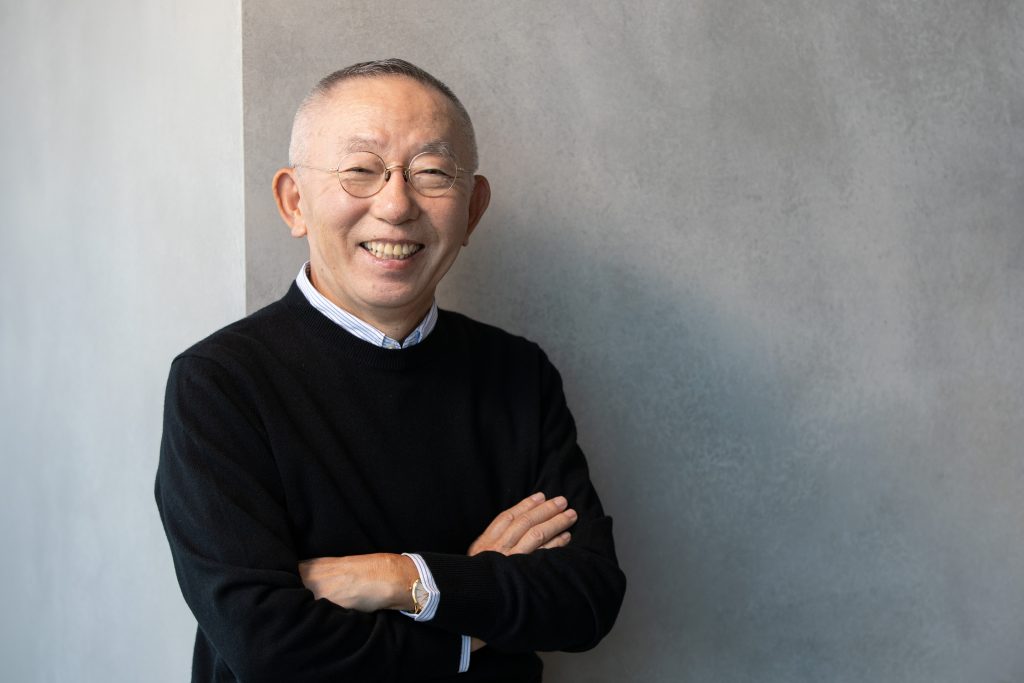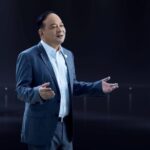- Home
- Billionaires
- Investing Newsletters
- 193CC 1000
- Article Layout 2
- Article Layout 3
- Article Layout 4
- Article Layout 5
- Article Layout 6
- Article Layout 7
- Article Layout 8
- Article Layout 9
- Article Layout 10
- Article Layout 11
- Article Layout 12
- Article Layout 13
- Article Layout 14
- Article Sidebar
- Post Format
- pages
- Archive Layouts
- Post Gallery
- Post Video Background
- Post Review
- Sponsored Post
- Leadership
- Business
- Money
- Small Business
- Innovation
- Shop
Recent Posts
Tadashi Yanai & Family: The Vision Behind Uniqlo’s Global Empire

Tadashi Yanai, the founder and president of Fast Retailing, the parent company of the globally recognized clothing brand Uniqlo, is one of the most influential figures in the global retail industry. Born in 1949 in Ube, Yamaguchi Prefecture, Japan, Yanai has built a fashion empire that has not only transformed Japan’s retail landscape but also challenged global giants in casual fashion. His story is one of vision, resilience, strategic risk-taking, and relentless innovation, and his family’s role in supporting and continuing this legacy is equally noteworthy.
Raised in a family of entrepreneurs, Tadashi Yanai was exposed early to the world of business. His father ran a small tailoring shop, which later expanded into a men’s clothing store called Ogori Shoji. After graduating from Waseda University in Tokyo with a degree in economics and political science, Yanai initially worked for a supermarket chain before returning to work at his father’s shop. It was there that his vision for a more expansive, international business began to take shape.
In 1984, Yanai opened the first Uniqlo store in Hiroshima under the name “Unique Clothing Warehouse.” The concept was straightforward: offer high-quality, affordable, and functional casual wear for everyone. What set Uniqlo apart was its commitment to quality and innovation in basic clothing. Under Yanai’s direction, the company embraced a “SPA” (Specialty store retailer of Private label Apparel) model, where it controlled every aspect of the supply chain—from design and production to distribution and retail. This vertical integration allowed Fast Retailing to maintain high standards of quality while keeping costs low and operations efficient.
Yanai’s leadership style is often described as forward-thinking, detail-oriented, and highly disciplined. He has publicly embraced failure as a stepping stone to success, often citing his own missteps in international expansion as key learning experiences. His initial attempts to enter the U.S. and U.K. markets faced challenges, including cultural differences and consumer preferences. However, rather than retreat, he recalibrated the company’s strategy, learning from the setbacks to guide future growth. Today, Uniqlo has a strong presence across the globe, including successful ventures in the United States, Europe, China, and Southeast Asia.
A central aspect of Yanai’s success has been his deep understanding of customer needs and global fashion trends. Uniqlo’s philosophy—“LifeWear”—focuses on simple, timeless, and functional clothing that improves the everyday lives of its wearers. Collaborations with top designers and brands such as Jil Sander, Christophe Lemaire, and JW Anderson have helped bridge high fashion with mass-market appeal. Technological innovations like HEATTECH and AIRism fabrics further exemplify the brand’s focus on comfort and utility.
Despite being one of the richest individuals in Japan, Tadashi Yanai is known for his relatively modest lifestyle and humble demeanor. He often credits his team for Uniqlo’s achievements and remains actively involved in the business. As of recent years, Fast Retailing has been working toward ambitious sustainability goals, including reducing carbon emissions and promoting ethical labor practices. Yanai believes that companies must contribute positively to society and has committed to making Uniqlo a leading force in sustainable retail.
Yanai’s family has also played a quiet but meaningful role in the background. While Tadashi has kept much of his private life away from the spotlight, it is known that he is married with two children. His sons have pursued careers in business, and there has been speculation about their future roles within the company. However, Tadashi has emphasized the importance of meritocracy and has not guaranteed any hereditary succession. He has spoken about preparing the company to be run by capable leaders, whether from within the family or from outside, and is focused on building a long-lasting institution that transcends individual leadership.
Beyond business, Yanai has shown a strong commitment to philanthropy and education. He has made substantial donations to causes such as disaster relief and academic institutions. One notable contribution was a $10 million donation to Harvard University to support Japanese studies. He has also supported local community initiatives in Japan, reinforcing his belief in giving back to society.
Tadashi Yanai’s journey from a small-town businessman to a global retail magnate is a testament to strategic vision, resilience, and a willingness to innovate continuously. His leadership transformed Uniqlo into one of the most recognized and respected fashion brands in the world. He has not only reshaped the clothing industry in Japan but has also left an indelible mark on the global fashion landscape.
As he grows older, the question of succession and the future of Fast Retailing becomes more pertinent. But with a strong leadership team, a global vision, and a clear set of values guiding the company, it appears well-positioned for continued success. Tadashi Yanai’s legacy is not just in the stores that dot major cities across continents but also in his philosophy of customer-first innovation, ethical leadership, and business with purpose. His family, while largely behind the scenes, stands as a pillar of support to his enduring vision. Together, they have contributed to a story of remarkable achievement that continues to unfold on the global stage.
- affordable fashion
- AIRism
- Asia billionaires
- Business Leadership
- Business Resilience
- business strategy
- business success stories
- casual wear
- Christophe Lemaire
- clothing empire
- consumer-first philosophy
- entrepreneur biography
- entrepreneurship in Japan
- ethical retail
- Family Business
- fashion innovation
- fashion retail
- fashion technology
- Fast Retailing
- Global Branding
- global expansion
- global fashion trends
- global retail
- Harvard donation
- HEATTECH
- innovation in textiles
- International Business
- Japanese business
- Japanese entrepreneurs
- Japanese fashion
- Jil Sander
- JW Anderson
- legacy planning
- LifeWear
- luxury basics
- modest lifestyle
- Philanthropy
- retail disruption
- retail innovation
- SPA model
- supply chain control
- Sustainable Fashion
- Tadashi Yanai
- UNIQLO
- UNIQLO collaborations
- Uniqlo history
- Uniqlo stores
- Uniqlo sustainability
- vertical integration
- Waseda University
- Yanai sons
Recent Posts
Categories
- 193 Countries Consortium Partner1
- 193cc Digital Assets2
- 5G1
- Aerospace & Defense48
- AI37
- Arts3
- Banking & Insurance11
- Big Data3
- Billionaires1,506
- Boats & Planes1
- Business332
- Careers13
- Cars & Bikes79
- CEO Network1
- CFO Network17
- CHRO Network1
- CIO Network1
- Cloud10
- CMO Network18
- Commercial Real Estate7
- Consultant1
- Consumer Tech194
- CxO1
- Cybersecurity73
- Dining1
- Diversity, Equity & Inclusion4
- Education7
- Energy8
- Enterprise Tech29
- Events11
- Fintech1
- Food & Drink2
- Franchises1
- Freelance1
- Future Of Work2
- Games149
- GIG1
- Healthcare79
- Hollywood & Entertainment203
- Houses1
- India’s 1000 Richest1
- Innovation46
- Investing2
- Investing Newsletters4
- Leadership65
- Lifestyle11
- Manufacturing1
- Markets20
- Media327
- Mobile phone1
- Money13
- Personal Finance2
- Policy569
- Real Estate1
- Research6
- Retail1
- Retirement1
- Small Business1
- SportsMoney42
- Style & Beauty1
- Success Income1
- Taxes2
- Travel10
- Uncategorized15
- Vices1
- Watches & Jewelry2
- world's billionaires1,475
- Worlds Richest Self-Made Women2
Related Articles
Francis Choi: The Toy Tycoon Behind a Billion-Dollar Empire
Francis Choi Chee-ming, often referred to as Hong Kong’s “King of Toys,”...
By 193cc World's BillionairesJune 6, 2025Francine von Finck and the Legacy of a Discreet Fortune
Francine von Finck, a name that commands respect in elite business circles,...
By 193cc World's BillionairesJune 6, 2025The Life and Legacy of Stefano Pessina
Stefano Pessina, one of the most influential figures in the global pharmaceutical...
By 193cc World's BillionairesJune 6, 2025John Morris: A Life of Vision, Growth, and Legacy
John Morris, the founder of Bass Pro Shops, is an iconic figure...
By 193cc World's BillionairesJune 6, 2025















Leave a comment